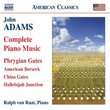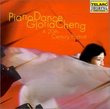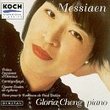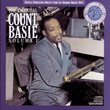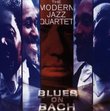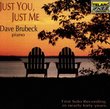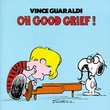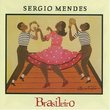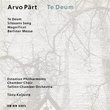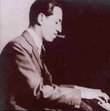| All Artists: Terry Riley, John [Composer] Adams, Gloria Cheng, Gloria Cheng-Cochran Title: Piano Music of John Adams & Terry Riley Members Wishing: 0 Total Copies: 0 Label: Telarc Release Date: 6/16/1998 Genre: Classical Styles: Ballets & Dances, Dances, Forms & Genres, Short Forms, Symphonies Number of Discs: 1 SwapaCD Credits: 1 UPC: 089408051326 |
Search - Terry Riley, John [Composer] Adams, Gloria Cheng :: Piano Music of John Adams & Terry Riley
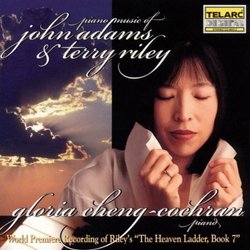 | Terry Riley, John [Composer] Adams, Gloria Cheng Piano Music of John Adams & Terry Riley Genre: Classical
|
Larger Image |
CD DetailsSimilar CDsSimilarly Requested CDs
|
CD ReviewsArguably the one of the greatest 7ths........ Timothy Mikolay | Pittsburgh, PA | 09/09/2002 (5 out of 5 stars) "Even though this album features a ghostly and wonderfully executed Beethoven 5th Piano Concerto (almost all of the artists, even in the orchestra have passed on), there is the addition of the 7th Symphony that EMI Classics seems to enjoy marketing and I feel is the greatest recording of the work.Steinberg's 7th is astonishing for very simple reasons: consistency, tempi and balance. During the 50's, the PSO was top notch and made numerous, memorable recordings with Steinberg and their 7th was, and I feel continues to be, their calling card. A full bowing from the strings opens the first movement and the elegance never stops. Even the second movement is quite elegant but nowhere near as slow as Karajan's and every bit as solemn. The Presto movement is fiery and the last movement never loses touch with the work's previous three. And this is always the problem with this symphony. Most conductors tie the first three movements together quite masterfully and then go to town in the last, forgetting the beautiful musical lines they executed.Steinberg is the true master here. On no recording, maybe Gardiner comes close, do I hear a more distinct musical line from opening to closing. I hope the reader doesn't miss a chance to grab this CD... because it is the best Beethoven 7th I've ever heard. The concerto is beautifully played as well." Excellent performance of interesting pieces David A. Beamer | Clawson, MI United States | 01/28/2004 (5 out of 5 stars) "The Riley compositions will be a bit of a revelation to those who know him primarily from his "In C" and "Rainbows in Curved Air" days. His work here is much more nuanced, and frankly, interesting. The first work is an homage to John Lennon, using elements of "I am the Walrus". You won't be stuck with the Beatles tune in your head when you listen to this however, since the only really recognizable bit is that last 30 seconds. The other Riley work is a suite of 5 movements called "The Heaven Ladder, Book 7". The styles of the movements are quite varied from one to the other. Although we think of Riley as one of the minimalists, what you get here is a melange of styles. Here a bit that sounds like Debussy, there some Poulenc, and over there some Persichetti. Or a bit of Chick Corea. But Riley isn't mimicking these other composers -- the comparisons are only an attempt to give a flavor of what the music is like. One of the movements is an honest-to-goodness fugue.The two pieces by Adams are much more in the minimalist vein, and for this listener, more satisfying -- the Riley pieces are in a rather more light-hearted mood. As Adams states in the liner notes, the "Gates" in the titles are derived from electronics, not door-like things. In both pieces he abruptly (but not disturbingly) shifts from one mode to another, like flipping a switch (or a "gate"). In the more ambitious of the two, Phrygian Gates, there is a great breadth of expression: tempo and dynamic changes abound. It is also quite complex, both structurally and technically. It takes some world-class technique to pull it off.And Gloria Cheng-Cochran does just that. Her playing is not only technically flawless, but is also quite musical -- bringing out the nuances, carefully placing each note. For those who think of minimalism as rather dull at times, these performances might just change your mind. The playing brings out "melodic" ideas, middle voices, etc.Lastly, a comment on the balance of the music: although there are 6 cuts by Riley and only 2 by Adams, the amount of time is much closer than that -- roughly half-and-half. The last track (by Adams) is 26 minutes long.I must say I was surprised at how much I enjoyed this CD."
|

 Track Listings (8) - Disc #1
Track Listings (8) - Disc #1
